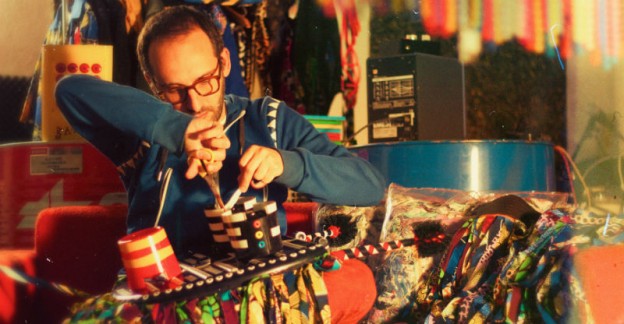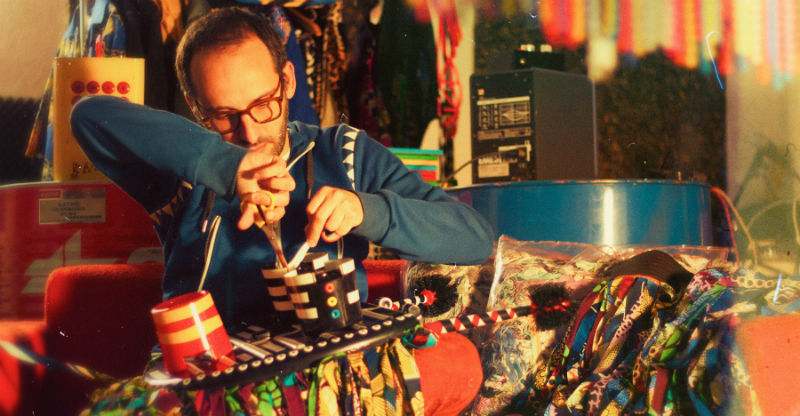Clandestino Festival summer edition 8 June Stora Teatern
Batida is the brainchild of Angolan / Portuguese Pedro Coquenão. A distinctly modern and vibrant project with its feet firmly rooted in the past, Batida combine samples from old 1970s Angolan tracks with modern electronic dance music. Music is the starting point but through dance, poetry, graphics, photography, radio and video, Batida expands, taking in politics and social commentary but always bringing it back to the party.
What originally started out as a radio show designed to promote new African music has slowly evolved into a collaborative project crossing continents, a full on live show with dancers, live samples, MCs & visuals.
Batida started when Pedro proposed a radio show in 2006 to Portuguese national radio around new African and Afro-influenced music, looking for artists who were drawing on influences from the past but giving it a modern twist.
Pedro quickly discovered a worrying lack of the sort of music he was hoping for his new radio show and so began working on his own material, explaining in a recent interview with Soundway, “I was finding lots of new urban electronic stuff, but not much that was embracing the traditional elements, like hip-hop artists do, such as rapper Baloji who samples traditional Congolese sounds and rhythms. Conductor, MCK’s producer and Conjunto Ngonguenha are doing similar things in Angola, but in the electronic dance music scene there was a huge gap between the traditional and the new”
Whereas nearly all of kuduro (Angolan electronic music) has no obvious links with it country’s musical heritage, it is deeply engrained in Batida’s music. Sampling tracks from 1970s Angola, Batida is a reinterpretation of Angola’s musical past, bringing it firmly into the modern day. Working on the tracks in his loft, Pedro began dropping some of them into his radio show. Unaccredited at first, this was his attempt to fill the gaps in his radio show. The reaction to his tracks was so encouraging he began to contemplate the idea of making a record.
Pedro would send out instrumentals to rappers in Angola and Lisbon, giving them a rough theme dependent on the mood of the track. Pretty soon the vocals started coming back to him and Pedro decamped into Portuguese producer Beat Laden’s studio in Lisbon to complete the project. Inevitably, coming from Angola and working with artists who still live there, it was impossible for Pedro not to bring some elements of social commentary and politics into his music.
“Being half Angolan, half Portuguese gives me that chance to try to translate the countries to each other, on a small scale of course. It’s impossible now a days to live in Lisbon and not to talk about crisis. Likewise it’s impossible to have friends and family in Luanda and not include the political and social problems that the city has.”

